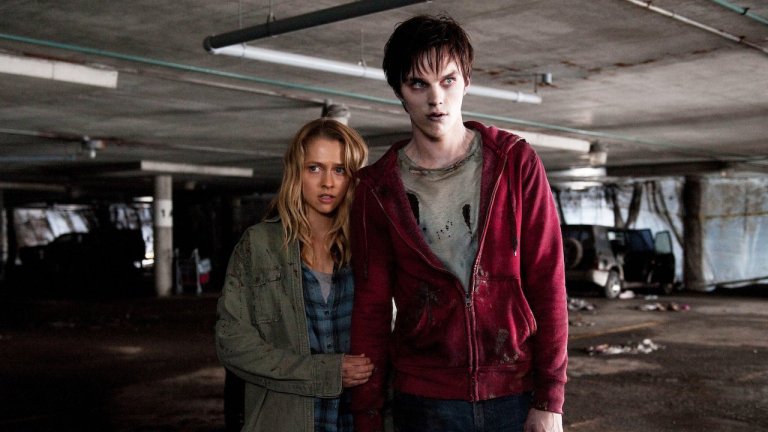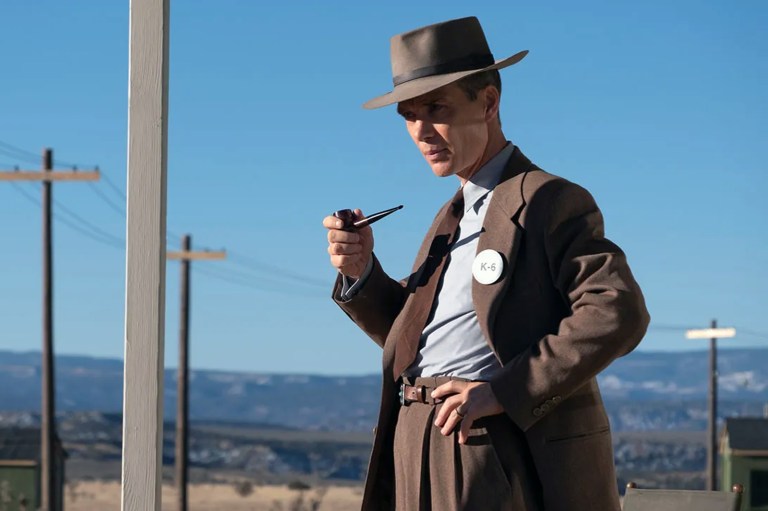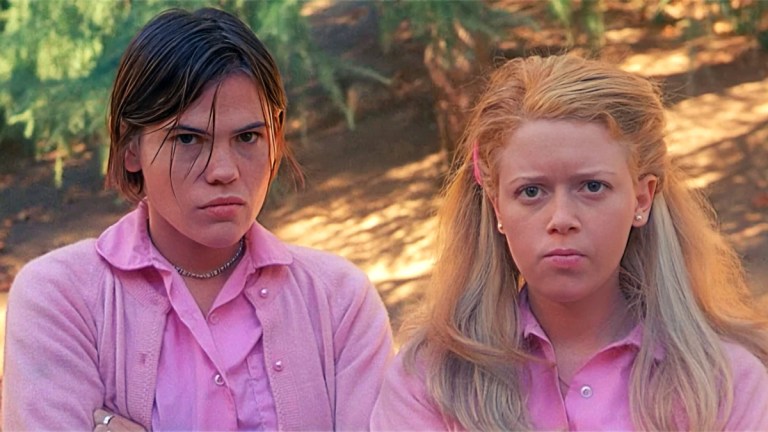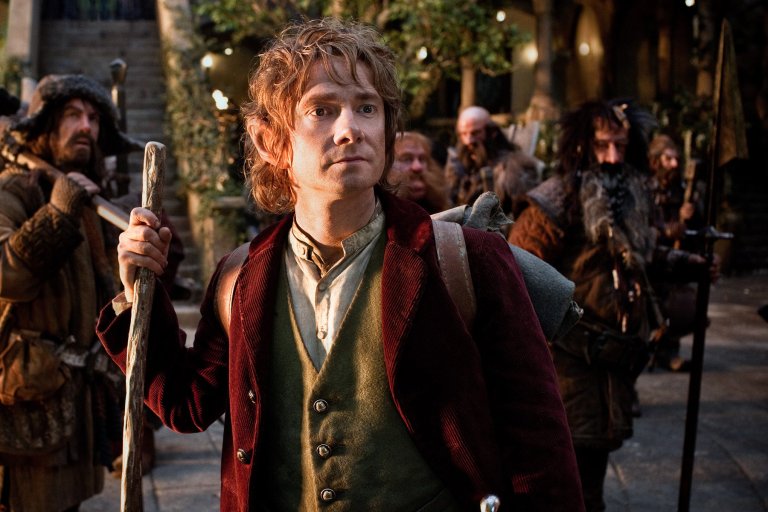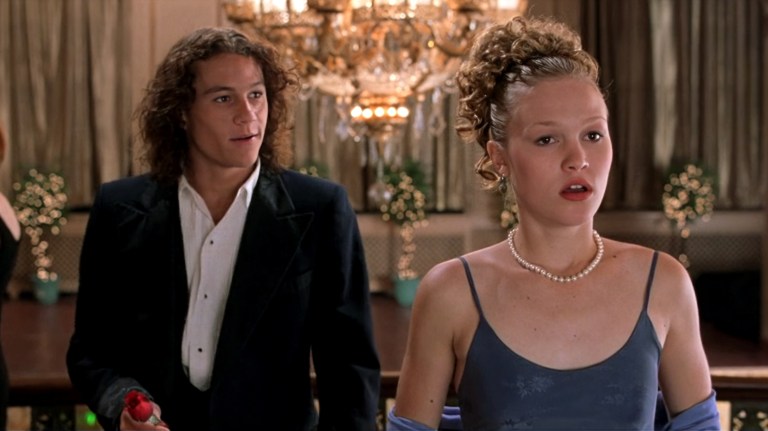
My Mother Knows Everything But One Thing About Me
There’s only one really big thing my mother doesn’t know about me. I have a tattoo. On my hip. Of a Chinese character. Sorry mum. Sorry everyone. I like to tell the story of the day I got the tattoo, because not only is it hilarious, but it pretty much sums up how much of a little cunt I (and probably everyone else was too) was when I was 18. It was a little after my birthday, and officially an adult, I thought the best way to go about the new found responsibility the world had given me, including the right to drink, drive and vote (not all at the same time, obviously) was to get my body branded with some stupid bullshit that I’d regret faster than you can say “Spring Break, bitches.”
One day after school, still in my school uniform, I drove myself and my three besties to a tattoo parlour in the neighbourhood. They were more nervous than I was—I marched right in and demanded my appointment, while they slunk around near the doorway, trying not to make eye contact with any of the droopy ear-lobed emos in the store. The tattoo artist, a guy with more ink than skin, excessively spiky hair and facial piercings ushered me to the tattoo chair, and dubiously sterilized and shaved my skin.
“Are you sure you want to do this?” he asked hesitantly, “I mean, some people think tattoos are bad for you.” He was obviously more Blink 182 than he was Sex Pistols, but I was a straight up punk rock.
“Well I drink and I smoke so I do plenty that’s bad for me already,” I snapped back. At the time I couldn’t identify the look on his face, but now I know it was that look—half whimsical nostalgia, half incredulous ridicule—that adults reserve for idiotic, unruly teenagers who think they know everything. These days, I use that look on teens gratuitously. I earned the right to—the mandate is still on my hip. The tattoo guy shrugged and began the job, while my friends peered over the barrier separating the tough, awesome assholes (people getting tattoos) from the boring normals (people not getting tattoos). When it was done he put baby teething cream on it and some Glad Wrap, and I left feeling only the tiniest pinch to my dignity, a little inkling of my idiocy, but I brushed it off in the carpark of a neighboring McDonalds, smoking cigarettes and eating Happy Meals and listening to my friends tell me how fucking cool I was.
When I got home my mum was watching TV, and she pulled me onto her lap (as she still loves to do with her three fully-grown children). She nuzzled her face into my back and said, “You’ll always be my baby,” and I thought somehow she must have know what her stupid daughter had done, and that she was punishing her for it by being way too nice and not at all someone a child would want to rebel against.
What I don’t love telling people is what the tattoo says. That afternoon at school, I had gone to the Chinese teacher’s office and asked her to draw me the symbol, not wanting to be stuck with something that translated to “Insert here” or “Pussy machine”. At least I was smart enough to take due diligence on that front. Unfortunately I wasn’t smart enough to get something non-cringe worthy tattooed on me (or to not get a tattoo at all), so that’s how I ended up with “Courage” permanently tattooed on my hip.
At the time, I loved to say things like, “Courage is not the absence of fear, but the strength to go on in spite of it,” and pretend like I was just biding my time to be called up for Slayer duty. Like all teenagers, I was trying to define myself, and even though I wanted to be bad-ass (hint: I wasn’t), I still wanted to project an image of myself that I thought of as admirable. And I’d always admired courage.
Not long after the tattoo-gate, high school finished, and I got into Law School, which I went to, and very courageously finished. Bravely, I applied for legal jobs, only about 40% sure that I actually wanted to be a lawyer, but 100% convinced that I should want to want to be a lawyer. After countless applications, finally I received a call from a private practitioner solicitor. He was a tiny Jewish guy named Jerry, not much taller than I was at 5′ 1″, and whose bones were so slight I was afraid he would buckle under the weight of his various ledgers and folders and be crushed, literally, in paperwork. When he interviewed me he was sweet, kind and warm, so when he rang me the day after, asking if I wanted to job, I enthusiastically accepted.
“To be honest,” he said, “There was one other applicant who would have been perfect for the job. She had better grades than you, but you have more common sense.” Oh, how wrong he was about that. “Anyway,” he continued, “I just want to make sure you really want the job, because I don’t want to have to look for someone else in 6 months if you change your mind!”
“No! No!” I assured him, “I am completely committed, and I won’t let you down.”
And so it began that I would wiggle into a suffocating pencil skirt, an unflattering tailored shirt, and sensible shoes, to go to work on Melbourne’s Collins St. Under the neon fluorescent lights of the firm, I fell into a depressing monotony changing plaintiff and defendant names in used and re-used court document templates. I’d get to work, get handed a stack of papers, put them in order, and trundle off to the admin departments of different courts to file them. The scowls of the notaries behind the glass were something akin to those of the attendants at the DMV. It was a poorly lit purgatory in which overly hassled, disgruntled staff would scurry about sifting papers into this box or that, and repeating. It was not the kind of lifestyle 18-year-old me had in mind when she got her Chinese character irreparably repaired to her hip.
Every day at lunch I would sit along with the secretaries and paralegals in an uncomfortable conference room, and the conversation would always be the same. “What’s that you’ve got there?” someone would inevitably ask.
“A sandwich,” I’d reply.
“And where did you get it?” someone else would pipe in.
“At the store next door,” I’d give the same answer I’d give every day.
“What’s in it?” a third voice would interject.
“Just salad and cheese,” I would say. Here, there would be a pause in the room.
“What sort of cheese?” would come the inevitable next inquiry in the line of questioning. And so it would go, every single day.
I wasn’t exactly changing the world, and the repetitiveness, more than anything foretold a bleak existence for what could potentially be the rest of my life. So when my boyfriend at the time, admittedly a spoiled douchebag who lived out of his parent’s unlimited bank accounts, asked me to join him for a semester abroad in Amsterdam while he finished his studies, I was quick to jump in, head first, despite the terrible, terrible relationship we were having. I needed an out and this was it. Except that I’d been at my job for, weirdly, 6 months, and I’d promised I was committed. This posed something of a problem—I didn’t want to let Jerry, who had been so supportive of me, down.
I mulled over the situation for two weeks. Outright quitting wasn’t an option, because I couldn’t go back on my initial promise. I considered just not turning up for work, but that seemed cowardly. So when I got sick with the flu, I saw my opportunity to do the only thing I saw as viable option: I would tell my boss I had a life threatening illness so that he couldn’t hold me culpable for quitting. That seemed, at the time, like the best thing to do. I plead insanity in my defence.
The first day I was sick I played it up immensely. I hobbled around the office, coughing melodramatically and constantly blowing my nose. It helped that I was already feverish, so I made a show of putting on my coat at my desk, taking it off, putting it back on again. Eventually, my boss, in his incredibly compassionate way, came out of him office and told me to go home and take care of myself. So home I went, snotting all over myself and rubbing the tips of my fingers together Mr. Burns style: “Excellent.”
The next day I emailed him in the morning and told him I was worse, and needed to visit the doctor, then I sat on the couch eating chips and watching Friends all day. In the evening I emailed him to tell him the prognosis “didn’t look good,” and that I wouldn’t be in the following day, which was a Friday. I obviously partied all weekend, and on Monday I emailed my boss to tell him I had glandular fever, and that I wouldn’t be able to come back to work now or ever. Being a lovely person, he was both kind and understanding, and wished me well under the unfortunate circumstances. Meanwhile, I told everyone in my life, friends and family alike, that I’d quit my job like a normal person, giving my two weeks notice and being very dignified and adult about it. I felt guilty about the lie I’d told, but as long as I didn’t tell anyone about it, it didn’t really happen, right? But like all terrible lies, it didn’t take long for mine to catch up with me.
The day after quitting my job because of a debilitating illness, I was out for coffee with a friend in the middle of the day, enjoying my “funemployment” and planning my move to Amsterdam, which was to be preceded with a two month jaunt around Europe, when my mum rang me.
“Hello?” I was immediately concerned—we’d seen each other mere hours before and there didn’t seem to be a reason for her to call.
“Are you OK?” she croaked into the phone.
“Yeah, why,” I asked.
“Some flowers came from you. They say ‘get well soon’. Is there something you’re not telling me?” My heart jumped straight into my throat as she spoke and I realized I had been outed to the one person who could say “I’m very disappointed in you” and make me feel like Rasputin at the bottom of a moat.
“Yeah I’m fine. I’ll explain when I get home,” I told her, and as I hung up immediately started contemplating if there was another lie I could use to get out of the fact that I told this lie. But there wasn’t—my trail of lies would end there.
When I got home my mum was standing in the kitchen with her hands on her hips. “What have you done?” was the first thing she said to me. I explained the whole, shameful ordeal to her, and at the end she laughed. “You’re an idiot,” she said, “A real fucking idiot. Now go and email a thank-you note to that poor man. And if you ever, ever think about pulling anything like this again I will disown you, I swear.” And so I emailed him thanks, and he responded with his best wishes, and that was that. It wasn’t until then that I realized not only how much of an idiot I’d been, but that I was completely cast adrift. I officially had no career, no job, and no idea what I was going to do with my life, other than swan about Europe, wasting away my small but hard worked-for savings account, with a guy I didn’t even really like for a summer. The way I’d got to that point was cowardly, for sure—nothing like the vampire fighting courageous adult woman I’d imagined myself becoming when I was 18.
My stupidity, like most stupidities, was a sharp learning curve for me. I can honestly say I can count the number of lies (not including white lies like, “There’s not too much salt on this!” when my grandma lovingly cooks me dinner) I’ve told on one hand. Not even one full hand! And it wasn’t until I was on that European soul-searching expedition that I’d lied to go on, standing on top of a mountain in Interlaken, Switzerland, about to jump off (I was paragliding, not self-harming), that I realized what courage really was. It’s this: it’s taking risks in order to live the best way you can, and being able to learn from your mistakes. I didn’t know what would happen when I jumped off the mountain, or where the wind would take me, but I knew that if I hated it, I never had to do it again.
So, nearly paralysed with fear, I made a running start for the edge of the cliff, and pictured Die Hard, nothing but a fire hose tied around his waist, taking a leap of faith off the top of a burning Nakatomi Plaza. He survived. I mean, he was hurt, but he made it. Making that leap isn’t about how you might fall if you do—it’s about how you might not survive if you don’t. I’d done a lot of dumb shit to make it to the top of that mountain, and as I cussed like a pirate the whole time I was gliding through the sky, I knew I had a lot of dumb shit left to do after I landed. Unexpectedly, courage, even in my most questionable moments, had always been there with me, right on my hip, every time I chose the free fall over the status quo. ![]()
